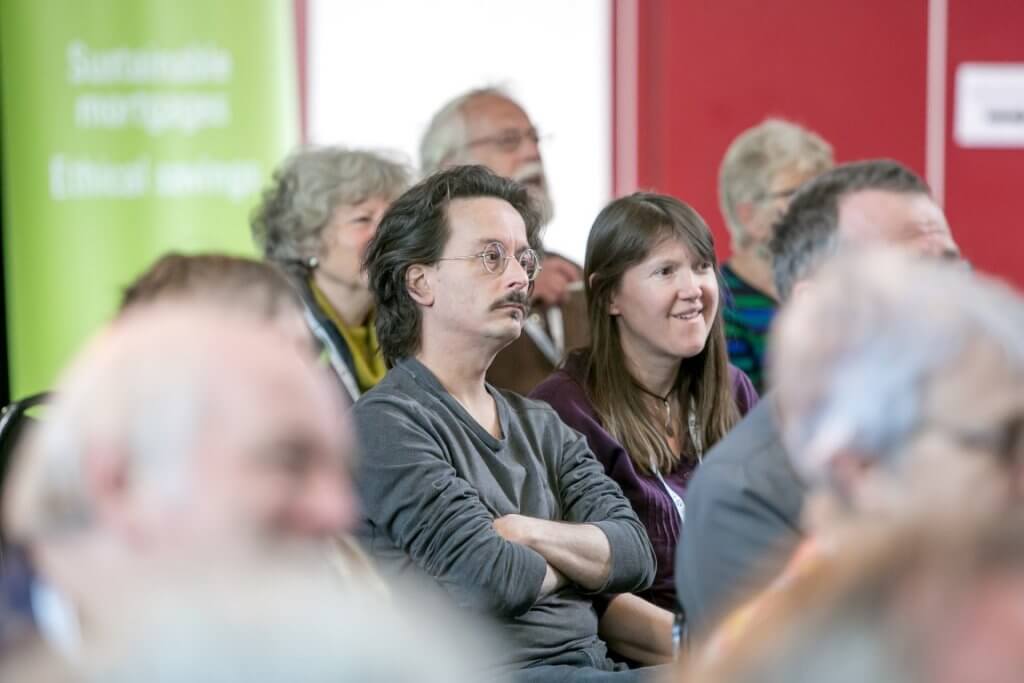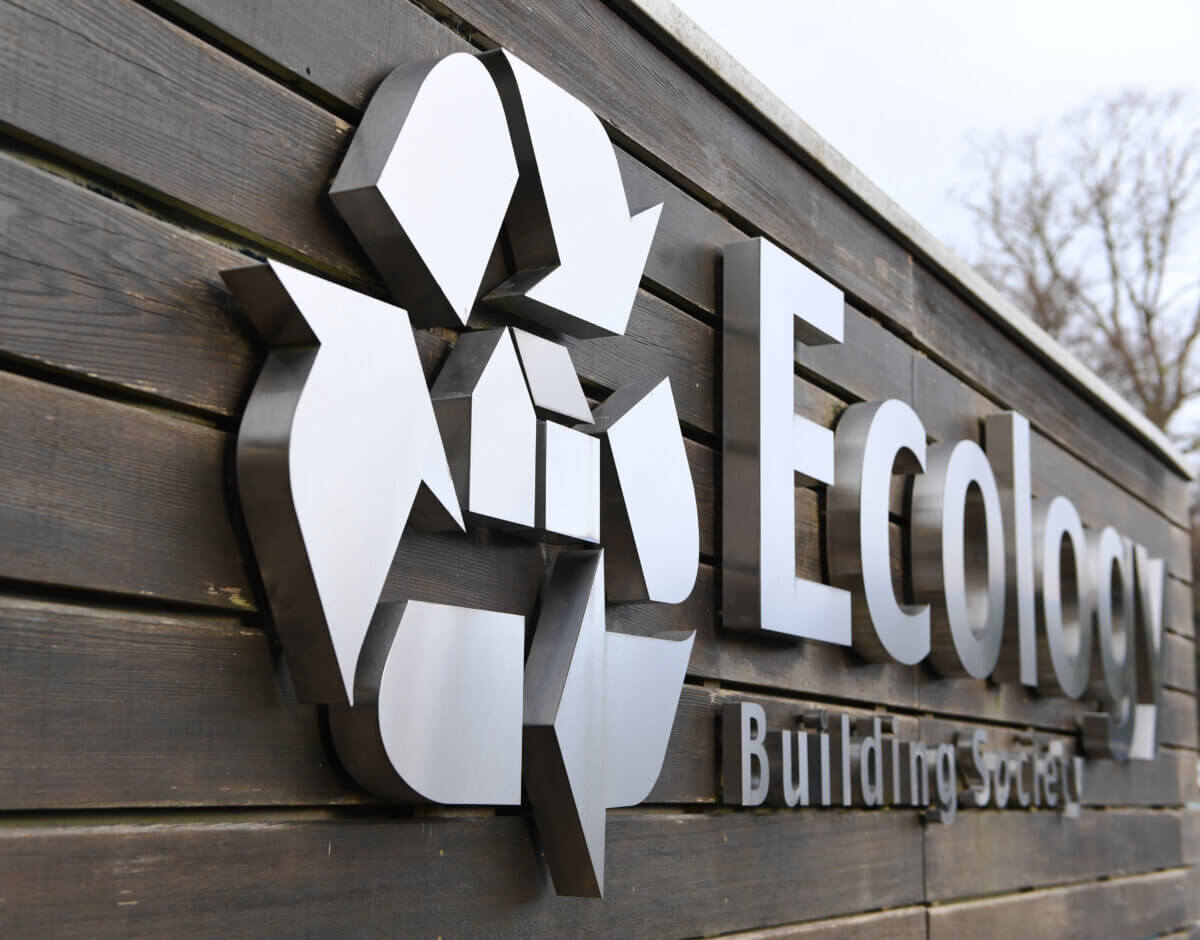Ask The Directors 2017

Could the Society investigate alternative providers of auditing services more in line with our values?
Given the regulated nature of the work of building societies, there are very few audit firms with the required specialist skills to choose from. At present, this would be one of the ‘big four’ firms (Deloitte, Ernst & Young, KPMG and PwC).
We work with two of these firms – KPMG as external auditor, and Deloitte as internal auditor; we cannot use the same firm for both audits.
The rules on compulsory retirement from an external audit position have just changed and mean KPMG will have to stand down, at the latest, after the 2020 audit.
When resources permit and, in advance of 2020, we will undertake a formal review of both internal and external audit so that the choice is extended as far as possible.
What actions can the Board take to advocate for a better representative group of auditors from whom to select?
Given the regulated nature of the work of building societies, there are very few audit firms with the required specialist skills to choose from. At present, this would be one of the ‘big four’ firms (Deloitte, Ernst & Young, KPMG and PwC).
We would welcome the opportunity to select both internal and external auditors from a wider pool and to that end are making enquiries of some of the next tier of firms to see if they might be able to offer audit services to a smaller building society such as Ecology.
We have also impressed on our regulators that there is a need to address the inadequacies of the current audit market.
Does Ecology have any plans to launch a current account product in the not too distant future?
As a fellow member of the banking on values movement, we welcomed the recent announcement that Triodos Bank will be launching a new current account for personal customers.
We have previously investigated the possibility of launching a transactional account facility which showed that this would take significant investment and it would have an ongoing cost that would either need to be passed onto our members either as a fee or a cross subsidy from other products such as savings accounts.
At the present time, while we continue to consider it, we do not have any immediate plans to launch a current account.
What was the uncertainty regarding future capital requirements? How has it been resolved?
A possible interpretation of existing EU capital regulations which would have tripled the amount of capital we would have needed to lend on new energy-efficient homes. We appealed to the European Banking Authority and our understanding of the regulations was confirmed.
What is the capital instrument you are developing?
Under the regulations, it is possible to raise extra capital from outside the Society that does not affect the mutual status of the Society and its mission. This would give us protection from the kind of uncertainty we have experienced in the past two years, place us on a more level playing field with shareholder-owned entities, and allow us to undertake larger loans, and invest in our future plans. It will also enable members to invest directly in the capital of the Society.
Are there any disadvantages to the Ecology in having this capital instrument?
As mentioned above, it does not give control to outside bodies, so the only implication is regarding profits – instead of a certain amount of profit being added directly to capital, this is used to pay the rent for the use of this extra capital. This is something the Society has done successfully a number of times before and allows us to scale up our ability to achieve our mission. And if ever the unlikely decision was taken to wind up the Society, all members would have to receive their funds back as well as a share of the capital of the Society before the holders of the capital instrument could profit.
When will the capital instrument be issued?
The recent regulatory uncertainty has contributed to the delay in our plans to issue a capital instrument. If and when we go ahead this is likely to be a two-stage approach.
Firstly we would seek investment from a social investment institution. Following this we would consider opening this up to Ecology members.
Has the Society looked at what implications Scottish independence would have for its business? If so, what is your thinking on this issue?
Scotland is currently the strongest area of our lending, (although there is a lower proportion of our savers based there), so we are continuing to monitor the political situation with regard to potential Scottish independence.
At this stage it’s far too early to say what impact independence would have on the business and any impact would depend on a number of factors including whether they would be retaining the same currency.
Potential future changes in legislation particularly around housing might impact on our ability to make new loans in Scotland post-independence however we would expect provisions to be made for existing contracts. We have laid a sum of capital aside to deal with reductions in valuations in the event of economic uncertainty in the event of a vote for independence, and potential currency fluctuations should an independent Scotland adopt the Euro.
Please could the directors explain more fully why the cost base of the society increased by 11% this year following the 15% rise last year, and whether they would anticipate realising any reductions in the management expenses ratio this year?
The Society is continuing to grow and has ambitions to grow further in order to promote its mission to lend on properties that have a positive environmental impact, and also to improve its services to members. The increase in administration costs is a reflection of the investment we have made, and continue to make, to support this growth by having sufficient resources in place. This includes recruiting staff with the requisite skills and experience, making sure that they have the tools that they require to do their job, also that we have in place sufficient resource in place to meet the ever increasing and demanding regulatory agenda and most importantly that infrastructure is in place to ensure members’ data continues to be safe and secure.
In addition, while the absolute increase in costs reduced slightly in 2016, it is important to note that the actual ratio of management expenses to assets actually decreased slightly demonstrating that our cost base as a proportion of our lending is not increasing.
Can you explain why you increased the maximum pay limit to eight times?
We have a long standing commitment to the principles of fairness and transparency for remuneration. Our approach is to reward our staff in line with their experience, expertise and overall contribution to the Society as well as the general marketplace. We’re an accredited Living Wage employer and have been awarded the Pay Compare Mark which recognises our transparent approach to remuneration by publishing our actual pay ratio.
At our last AGM we informed members that we would review how we set Executive remuneration including our long standing commitment to a ‘fair pay’ policy that no basic salary will exceed a limit of five times the lowest full grade available. This reflected concerns that the level set for this maximum pay limit could impact on our ability to recruit staff with the appropriate skills and experience that we require in order to continue growing in an increasingly complex regulatory environment such as the implementation of the new Senior Managers’ Regime.
Our review looked at a range of considerations including ethical pay best practice and benchmarking against similar organisations, which included external advice from HR specialists with extensive experience of working with the co-operative and mutual sector. We concluded that a revised maximum pay limit of eight times would, over time, allow Ecology to attract staff with the skills and experience sufficient to support our requirements, whilst still ensuring that we are aligned to best ethical practice.
We committed to seek member’s views on the proposal to increase the maximum pay limit to eight times and, in September 2016 we asked members of the Ethics Panel to provide feedback on our commitment to fair pay and the proposal for the revised limit.
The majority of respondents supported an increase to eight times or more and the Board consequently revised the maximum pay limit to eight times the lowest full grade with effect from 1 January 2017.
What more can you do to promote Ecology and try and increase your ethical approach?
Or is it a case of that you just can’t handle more savers?
We are currently experiencing a high level of demand for our savings accounts which has meant that we’re not accepting new savings account applications at the present time. Clearly while this is the case we’re not actively promoting Ecology’ savings accounts but we are continuing to undertake a wide range of marketing and promotional activity for our sustainable lending and developing new ways of sharing the overall Ecology story such as video case studies on our website.
How do you market and promote Ecology’s mortgages?
We market and promote our mortgages in a range of ways as we’re always looking for ways to present our lending propositions to potential borrowers.
In the past we placed advertisements in print publications but increasingly our advertising is focused on digital media including paid for search and advertising on relevant websites. We also benefit from positive ‘word of mouth’ from intermediaries such as architects and the wider green building community. We also develop partnerships, particularly with the community led housing sector to promote our lending.
Could Ecology offer a fixed rate mortgage?
Ecology could offer a fixed rate mortgage product, which we would want to back with a fixed rate savings product or bond. Currently the maximum we could offer would be a two year bond but there may be scope to get this changed so we can offer one for a longer period.
I was interested to read about the London CLT scheme in the Annual Review – what other plans does Ecology have to finance affordable housing in London?
We are committed to expanding our lending for community-led housing projects such as Community Land Trusts, Cohousing Groups and Housing Co-operatives across the UK. These are mutual models that deliver affordable homes in areas such as London that suffer from very high rents and property values. We also find that where communities have ownership of their own projects they are invariably keen to create energy efficient, sustainable housing as well as fair allocations policies, sale prices and rent terms.
We very much hope to be working with London CLT on further projects shortly, as well being in discussion with several other community-led housing providers in the capital at present which we hope will come to fruition later this year. We are also talking to other social funders in London with a view to partnering on projects that may otherwise have been too large for the Society to tackle on our own.
Does Ecology have to turn down some projects that are too big?
All of the projects we lend on need to be aligned to our mission and will therefore primarily have strong environmental credentials and may also have strong social credentials.
In addition for prudential reasons we have limits on the concentration (for example the geography and/or type) of our lending and also limits on the financial scale of individual projects. We are also happy to work jointly with other value-led lenders on larger projects.
Increasing our capital should enable us to take on larger schemes which may have greater environmental and social impact.
Does Ecology work with mortgage brokers?
Some of our lending does originate through mortgage brokers but we do prefer to manage the relationship directly with the borrower as early as we possibly can.
Is Ecology contributing to the house-price bubble by providing mortgages for expensive homes so what more can Ecology do to support affordable housing?
We are acutely aware of some of the market failures in the housing market which is partly caused by demand massively outstripping the supply of housing is some parts of the country.
We are committed to expanding our lending for community-led housing projects such as Community Land Trusts, Cohousing Groups and Housing Co-operatives across the UK. These are mutual models that deliver affordable homes in areas such as London that suffer from very high rents and property values. We also find that where communities have ownership of their own projects they are invariably keen to create energy efficient, sustainable housing as well as fair allocations policies, sale prices and rent term.
We have previously also worked closely with those organisations involved in bringing empty homes back into use but this is not currently being publicly funded in a way that makes this viable.
Can housing co-operatives open deposit accounts with Ecology?
We’re not currently accepting applications for any of our savings accounts due to continued high levels of liquidity. However when we are in a position to start accepting new account applications again we are planning to review our range of accounts and consider whether and how we are able to offer a deposit account for housing co-ops.
We remain committed to supporting housing co-ops and the wider community led housing sector and we recently increased the maximum term for our mortgages for housing co-ops to 40 years which may help them lower their monthly mortgage repayments, and keep rents manageable for their members.



